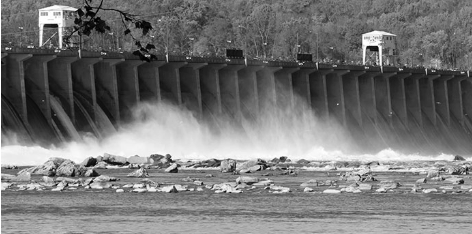Doing what’s right vs. doing what’s convenient; Obnoxious spreading of road salts damages community
January 17, 2022
Beet molasses and pickle brine- theses are safe alternatives to damaging road salts that are exceptionally overused and harmful. Drinking water contamination, and wildlife endangerment are just a few of the issues connected to the overuse of road salt.
According to the Maryland State Highway Administration there is a 76 million dollar winter budget, the majority of the winter budget goes to the 385,000 tons of rock salt and 1.7 million gallons of salt brine. While that allotment of money is impressive, the harm to the environment far outweighs the benefits of road salt.
Maryland is currently working on educating volunteers and employees that plow on properly dispersing salt and road targeting according to the Road Salt Supplements Information provided by Maryland Transportation. Although when driving down a highway or through a neighborhood it is not uncommon to see large piles and long streaks of salt that were not dispersed properly. If Maryland was serious on educating about road salts it evidently needs to be more rigorous.
There are many alternatives to the classic road salt and salt brine used on roads and sidewalks. Like Scott’s Eco-Friendly Ice Melt or MELT, a premium environmental blend ice melter. The issue with these options is that they are significantly more expensive than generic brands. 20$ 50-pound generic salt compared to an environmentally safe option that is 20$ for 25 pounds. The price should not be an excuse to eliminate a safer brand of salt, it is important to choose the right option instead of the cheaper option.
The damage that normal road salts cause should be an indicator to Maryland that a change needs to be made. The money spent to restore contaminated water sources and the corrosion of roads and bridges is preventative if a safer alternative was considered. For the everyday person road salts corrode at vehicles causing expensive repairs.
Road salts are extremely important in their aid to keeping roads safe for winter travel, but the salts have raised the salinity in drainage water bodies. An increase in salinity causes death to organisms and aquatic vegetation, this correlates to private drinking water wells experiencing an unhealthy amount of sodium according to Columbia Climate School. Why do we continue to use this harmful substance in extreme amounts with all the negative effects?
The government chooses the cheapest option available with no regard to the effects that it has. According to Maryland Transportation, salt loses its effectiveness at temperatures below 20 degrees; it is important to note that most snowstorms have low temperatures, thus the salt that is being used serves little purpose in melting the ice accumulation. This is a waste of resources, time and money.
We need to consider the greater good for our environment and community instead of automatically going with the cheapest option. Some states have even banned the use of road salt, this could be a valuable tool in helping our community stay safe.











